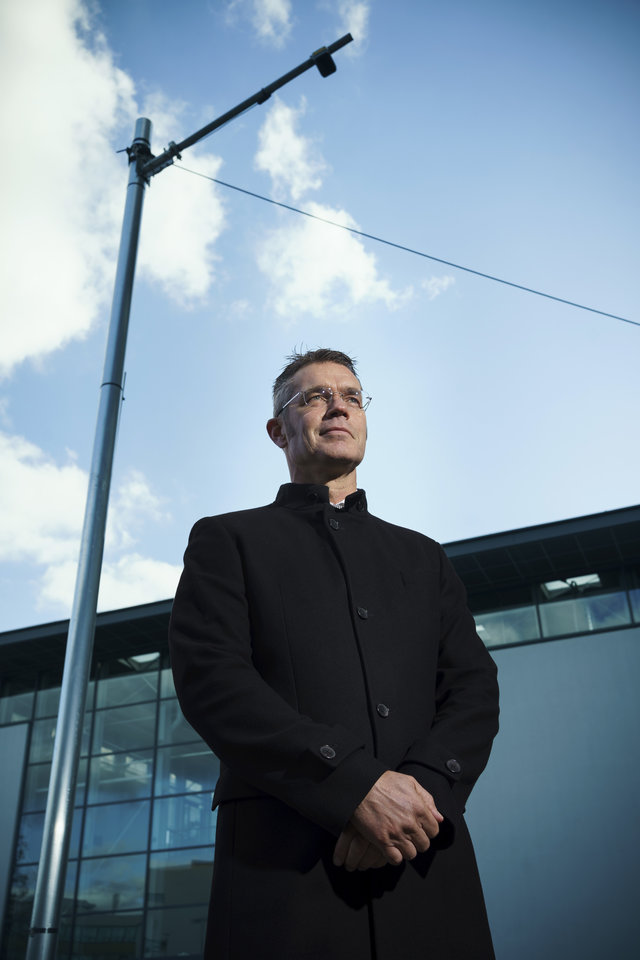Faculties of A+BE and CEG receive funding to innovate learning
Over the past months, several faculties put in effort to submit project proposals for the ‘Stimuleringsregeling open & online onderwijs’, a fund provided by the Dutch ministry of education to stimulate innovation and quality improvement in Dutch higher education. Last week the minister of Education formally decided to grant 2 projects with public funding.
Faculty of A+BE
Serdar Asut focusses on making his Robotic Fabrication lab more accessible and inclusive and enriching the learning experience for students. This innovation will bring the interaction between students and physical models and prototypes to an AR/VR experience, enabling more students and students unable to come to campus. Serdar receives 100K of funding which will be 100% matched by the faculty.
HANDZONe: A Hybrid Workspace for Blended Hands-on Learning Activities on Robotic Fabrication (Serdar Asut, faculty of ABE)
A significant part of the ‘Technoledge Design Informatics’ course involves interaction between students and physical tools, machines and materials. In this hands-on “design & build” course, students build different types of physical models and prototypes by using digital fabrication technologies, primarily robotic fabrication by using an industrial robot arm. Such courses usually make use of special infrastructures such as a model making workshop or a laboratory to practice certain craftsmanship, either analog or digital. The access to such physical facilities is currently limited to the students who can physically be on the campus.
This project will enable remote access through an immersive VR environment to the robotic fabrication lab at the faculty. The students will be able to use this environment to train and develop skills on programming, simulating and operating the robot arm remotely in a collaborative workflow. Thus, some of the learning activities of the course will be possible to be held online. It will enable a more efficient use of the available teaching resources. It will allow the educators to go on teaching such hands-on courses with more flexible methods when the access to the infrastructure is limited for different reasons.
Faculty of CEG
Rolf Hut will use the funding (175k, 1005 matched by his faculty) to exchange hydrological models developed in different HE Institutes by the Hydrological modelling community. The exchange will enable a much richer learning experience for students, now that they need to decide which model to use, where each model was developed in a different context.
Hydrologisch Modelleren met eWaterCycle (Rolf Hut, faculty of CEG)
Hydrologische modellen zijn complexe stukken software die moeilijk op een willekeurige machine aan de praat te krijgen zijn. Dit frustreert het onderzoek naar en met hydrologische modellen en het onderwijs over hydrologische modellen. De wens van de docentencommunity Hydrology (TU Delft, Wageningen Universiteit, en Universiteit Twente, aangevuld door VU en Universiteit Utrecht) is om toegang te hebben tot modellen, data en onderwijsmateriaal van collega’s op andere instellingen en om studenten meerdere modellen aan te kunnen bieden.
In de door de TU Delft en het Netherlands eSciencecenter gemaakte online omgeving eWaterCycle zijn hydrologische modellen als objecten makkelijk benaderbaar en uitwisselbaar. Het project beoogt studenten laagdrempelig met meerdere hydrologische modellen in aanraking te laten komen gedurende hun opleiding. Met de middelen uit dit project worden bestaande lesmaterialen en hydrologische modellen van docenten openbaar beschikbaar gemaakt binnen eWaterCycle. Hiermee zal er aanzienlijk tijd vrijkomen voor verwerking van meerdere hydrologische modellen door studenten, in tegenstelling tot de huidige beperking van één model waar hun docent zelf mee werkt. Na afloop van het project zullen studenten die watermanagement, hydrology, environmental engineering, bodem-water-atmosfeer, etc. in Nederland studeren veel breder toegerust zijn om de complexe problemen en uitdagingen in de waterwereld te analyseren en op te lossen.
Both projects will start this summer. In 2 years time they aim to improve and innovate in education.
The Teaching Academy has supported several faculties in the past few years in the process for this funding opportunity. You can find more information about these projects:
- on the Teaching Academy website;
- on the surf website about this stimulus package.
